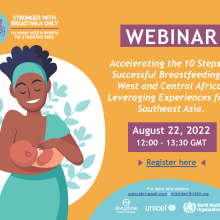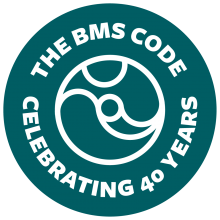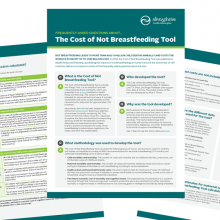Announcement
Aug 01 2022

WEBINAR: Accelerating the 10 Steps to Successful Breastfeeding in West and Central Africa. Leveraging Experiences from Southeast Asia
The Stronger with Breastmilk Only regional initiative, a collaboration of UNICEF, WHO and Alive & Thrive, is pleased to invite stakeholders to a 90-minute webinar on August 22 at 12:00 GMT to discuss how to accelera
Announcement
Jun 01 2021

Special BMS Code resources collection
Alive & Thrive has launched a special collection of resources on the BMS Code, featuring resources from various organizations around the world.
Journal article
Apr 26 2021

Misalignment of global COVID-19 breastfeeding and newborn care guidelines with World Health Organization recommendations (Hoang, D.V., 2020. BMJ Nutrition, Prevention & Health)
Guidance documents from 33 countries on newborn care for infants whose mothers are diagnosed with confirmed or suspected COVID-19 were assessed for alignment with WHO recommendations, revealing considerable inconsistencies.
Handout
Oct 14 2020

Frequently Asked Questions about the Cost of Not Breastfeeding tool
Not breastfeeding leads to more than half a million child deaths annually and costs the world economy up to US$1 billion a day.
Journal article
Feb 25 2020

The cost of not breastfeeding: global results from a new tool (Walters, D., 2019. Health Policy and Planning)
A billion dollars and two thousand lives, every day. This impactful study, which is the foundation for Alive and Thrive’s online tool, examines the human and economic costs of not breastfeeding.
Journal article
Feb 11 2020

Suboptimal infant and young child feeding practices in rural Boucle du Mouhoun, Burkina Faso: Findings from a cross-sectional population-based survey (Sarrasat S., 2019. PLOS One)
Mothers in the rural Boucle de Mouhoun Region of Burkina Faso had low levels of knowledge of IYCF and practices, according to this study: 60% of children had the minimum meal frequency, while only 18% benefited from the minimum dietary diversity and 13% received minimum acceptable diet.

